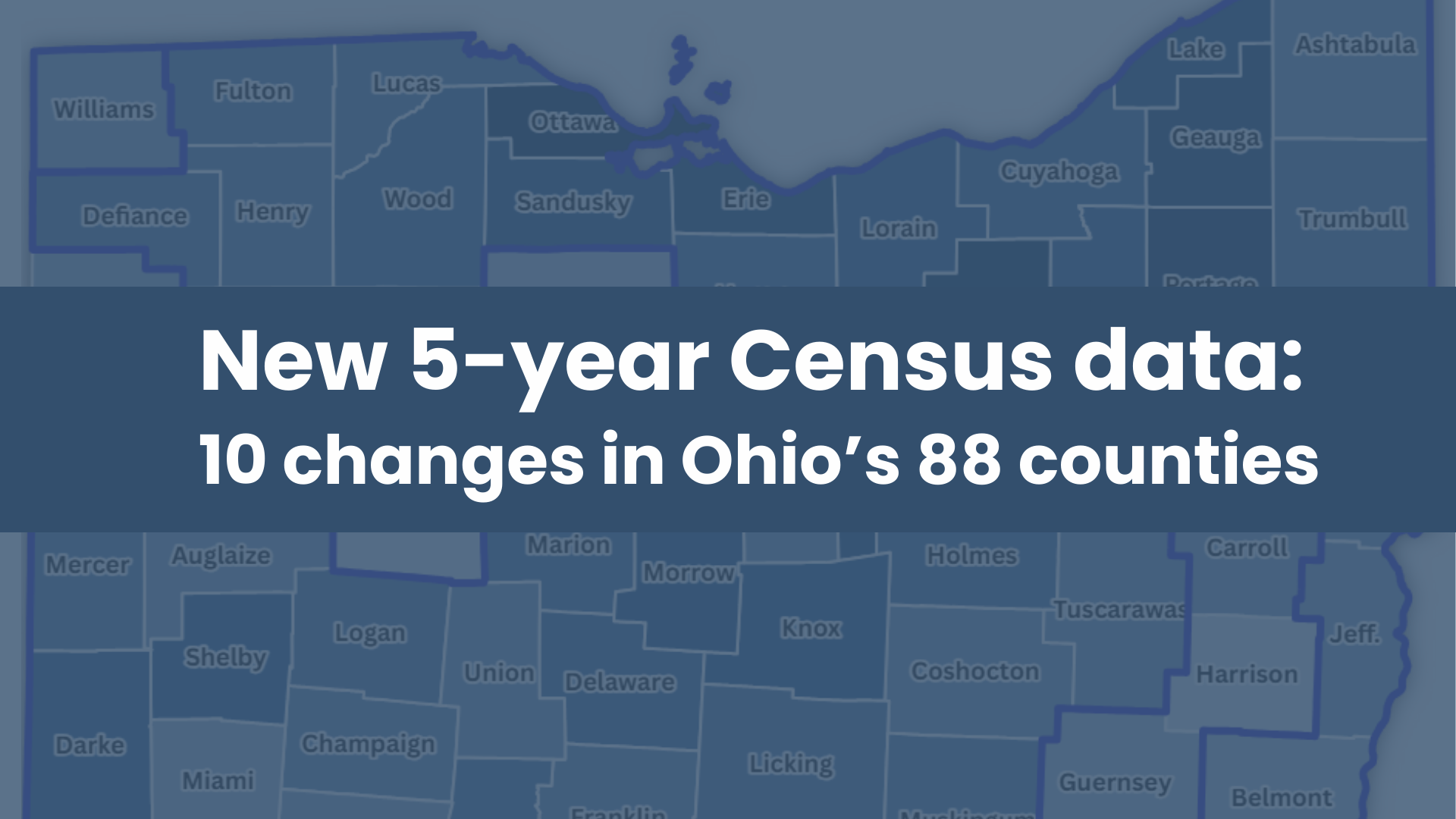At the first 2020 meeting of the Cuyahoga County Council Health, Human Services and Aging Committee, the committee members heard updates on three homeless services contracts. The committee also heard one contract for at-risk youth.
The first contract up for discussion was a one-year extension with Lutheran Metropolitan Ministries (LMM) worth $2,231,635. LMM operates the single-adult-male homeless shelter at 2100 Lakeside Avenue. The contract currently runs from March 2017 until December 2019. The contract extension would extend the contract to December 31, 2020. Testifying on behalf of the county was the manager of the Office of Homeless Services, Ruth Gillett. Gillett testified that the shelter housed 3,283 unduplicated individuals in 2019. Of those individuals, 2,825 exited the shelter. Gillett explained that 34.5 percent of those 2,825 exits were considered “positive exits,” which indicates they moved to a permanent housing option. Gillett then presented the committee with data from what is called a Point-in-Time (PIT) Count, which is an annual count that takes place during the third week of January, that is used to calculate the number of homeless individuals in the county and to track populations from one year to the next. These counts include people who are located in homeless shelters, in transitional housing, as well as those who are unsheltered. According to the latest PIT Counts, from 2017 to 2019 the county saw a decrease in the number of homeless single adults, as well as a reduction in the number of homeless veterans and of individuals with serious mental illnesses. Additionally, the county saw an increase in the number of individuals who self-reported having HIV/AIDS, as well as an increase in the number of adults who were fleeing domestic violence. This data is collectively reported to the United States Department of Housing and Urban Development.
From 2017 to 2019 the county saw a decrease in the number of homeless single adults.
Councilmembers did not have many questions. Councilwoman Shontel Brown asked Gillett how the homeless population will be counted in the census that will take place later this year. Gillett testified that the county is currently coordinating with the shelters in order to try and get as accurate a count as possible. Councilman Dale Miller asked for Gillett to explain what ‘safe havens’ were. Gillett answered that safe havens are permanent shelters for individuals with severe mental illnesses. These safe-havens are currently within various facilities and are supported by Frontline Services and Emerald Development and Economic Network (EDEN). Councilman Dale Miller asked Gillett to clarify the statistic about 34.5 percent of exits are ‘positive exits’ and asked where the rest of the population goes. Gillett said that there are different ways to interpret non-permanent exits, such as when a person goes to live with a family member, it may be classified as a temporary exit instead of a permanent one. Michael Sering, Vice President of Housing and Shelter for Lutheran Metropolitan Ministries, briefly testified that there were no outstanding issues with the shelter. The contract was passed out of the committee, to be voted on by the full council, under second reading suspension.
The second contract discussion was a one-year extension worth $3,500,000 for at-risk youth services.
The second contract discussion was a one-year extension worth $3,500,000 for at-risk youth services. Formerly known as the Tapestry program, the contract is now officially called “Family Centered Support Services.” It is for children and family who need support services and is to prevent the need for out-of-home care if possible. Some of these services are voluntary, some are court-ordered, but the end goal is to ensure the safety of the children. Some of the services in the contract include behavioral therapy, parent-child interaction therapy and medical case management. These services are available to families within the county 24 hours a day, seven days a week, through 10 different providers. These providers are: Applewood Centers, Inc., Beech Brook, Bellefaire Jewish Children’s Bureau, Catholic Charities Corporation, The Cleveland Christian Home Incorporated, Frontline Services, OhioGuidestone, Ohio Mentor, Inc., Pressley Ridge and Specialized Alternatives for Families and Youth of Ohio. Testifying on behalf of the contract request was Cuyahoga County Department of Health and Human Services Manager of Contract Administration, Christine Alexander.
Alexander explained that two-thirds of the funding for this program is made up of federal dollars, with the remaining one-third coming from county health and human services levy dollars. Moving forward, the county has started measuring family outcomes to better understand performance measures of each agency. The county is also requesting quarterly-data updates from each agency to ensure that they are effective supporting families.
Some of the services in the contract include behavioral therapy, parent-child interaction therapy and medical case management.
Chairwoman Yvonne Conwell opened the question period by asking if parents are also interviewed to evaluate satisfaction with the services provided by the various agencies. Alexander said yes, parents are also included in the evaluation process. There were no additional questions from councilmembers. Alexander closed her testimony by saying that the county has learned recently that the various providers do not use the same measurements to track client outcomes. Beginning this year, the county will begin working with agencies on standardized definitions and measurement tools, so that the county can compare service quality across various organizations. The contract was passed under second reading suspension.
A third contract extension was also discussed that would provide an additional $1,422,993 for Frontline services
A third contract extension was also discussed that would provide an additional $1,422,993 for Frontline services, the operator the Northpoint homeless shelter. Gillett explained the structure of Northpoint, which is funded by the City of Cleveland, Cuyahoga County and the State of Ohio. Initially, it was an adult-male facility, then began to allow both men and women and in recent years, the facility has also started to house homeless youth. The facility is a former hotel, so rooms are single and double occupancy. Hearing no other questions, the contract was approved under second reading suspension.
The final contract was also related to homeless services. It is a one-year contract extension worth $2,751,793 for the YWCA to operate the Norma Herr women’s homeless shelter through December 31, 2020. In recent years, before the YWCA operated the facility, there were many service quality and security complaints. In May 2018, YWCA took over management of the facility. Over the past year, Gillett testified that the Office of Homeless Services has assisted the YWCA in improving the shelter, including using a federal grant to improve staffing levels, and recommending national best practices the YWCA can use. Testifying alongside Gillett was Teresa Sanders, Chief Program Officer for Social Service Programs and Operations for YWCA Cleveland. Sanders explained that YWCA has substantially increased service staff to better respond to resident’s needs, such as more housing navigators to help people find stable housing options. The YWCA also hired more security guards and coordinated the guard schedules for when the shelter experiences spikes in violence between facility clients.
Sanders did note that over the past year, the shelter has continued to have issues with food, including food that did not show up, or was underprepared. Because of the issues with the food, YWCA recently decided to issue an RFP for a new food provider. That new food provider, Trio, is the same food provider for the Benjamin Rose Institute on Aging. Sanders explained that this was a good move not just because of the improvement in food quality, but also because the shelter is starting to see an increase in the number of homeless older adults at the facility, so it is coincidentally positive that the food that is served from the new vendor is friendly for seniors.
Just because a person is found to be using illegal substances, does not necessarily mean that individual would be permanently removed from the facility.
Miller noted that the annual allocation request is smaller than last year. Sanders explained that the shelter received additional funding from the city and the federal government, which helped decrease the amount requested from the county. Miller asked about the guidelines for individuals who are found to be using illegal substances in the shelter. Sanders said that just because a person is found to be using illegal substances, does not necessarily mean that individual would be permanently removed from the facility, but that person could face staff mediation in order to be allowed to return back to the facility. Additionally, the individual will be connected to social services that could help break the addiction. Finally, Miller inquired about the grievance process. Any complaints from guests are usually mediated with the shelter director first. If there is not a successful resolution to the issue, the complaint is then sent to the Client Rights Officer of YWCA, however, 90 percent of complaints are resolved at that first level.
Approximately one-third of women at the homeless shelter are either an escapee of domestic violence, or have experienced domestic violence at some point in their past
Conwell closed the questions by asking about the rates of domestic violence of guests at the shelter. Sanders said that approximately one-third of women at the homeless shelter are either an escapee of domestic violence, or have experienced domestic violence at some point in their past.
The contract was moved to the full council under second reading suspension, and the committee meeting was adjourned.







